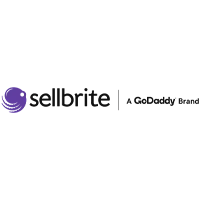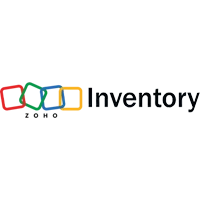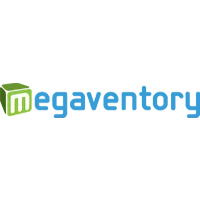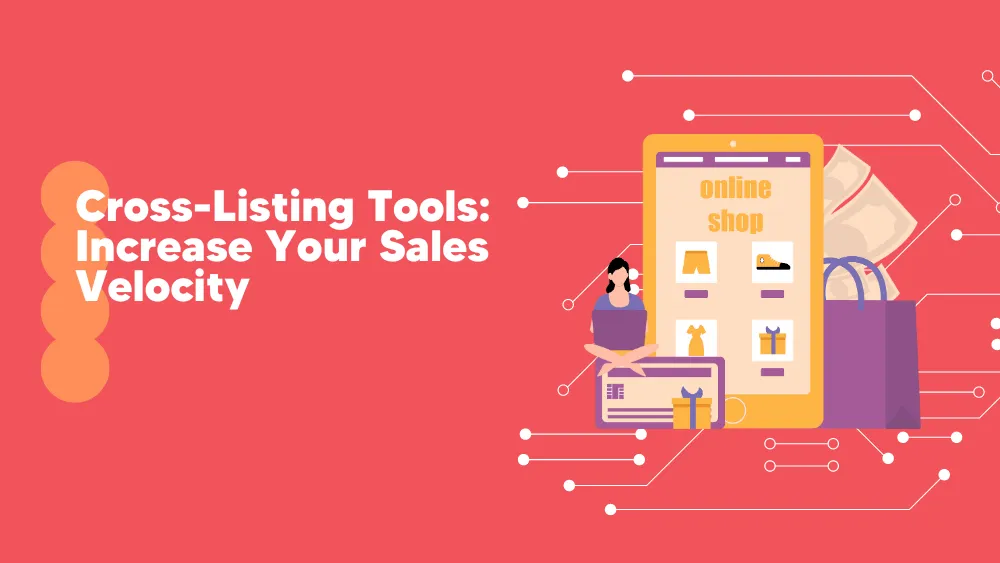
Best Inventory Management Software
What is Inventory Management Software?
Inventory management software allows businesses to manage their inventory and automates inventory management by removing human intervention and related human errors. Its goal is to keep inventory healthy by maintaining optimal product flow so order fulfillment doesn’t stop.
Good inventory management software integrates with critical business systems such as point-of-sale, accounting, and eCommerce platforms. It can update and reorder accounting data by keeping accurate inventory data. Moreover, you can use it to keep a real-time tab on your stock levels. It can also include supplier management capabilities for easy supplier relationship management.
The benefits of using inventory management software for any business include improved accuracy, product insights, increased productivity, better customer experience, and cost savings. However, as a business, you should look for a few key features when choosing an inventory management solution. These features include automated reordering, inventory catalog, e-commerce integration, reporting feature, mobile app for easy access, and Point-of-sale(POS) integration.
In conclusion, cloud-based inventory management software is essential for your business. It helps you automate inventory management. It can take over critical steps, ensuring proper reordering and a better understanding of your inventory. In the long run, you save money, resulting in an improved inventory turnover rate.
Compare Inventory Management Software
Freshservice
Table of Contents
What are the 4 types of Inventory Management Software?
For businesses, it is essential to know the different types of inventory management.
There’re plenty of various inventory management systems. Of course, different factors distinguish these systems, including technique, frequency of use, technology, and industry. However, as a business, you should know about these four types.
Periodic inventory management systems:Periodic inventory systems include physically checking the inventory at regular intervals. It is mainly suited for small businesses with limited inventory while helping them with minimal inventory amounts.
Perpetual Inventory System:These systems rely on radio frequency identification(RFID) tags to update real-time inventory. The data is updated with inventory movement and is connected to various systems.
Barcode Inventory Systems: Any inventory system that uses barcode technology falls under the barcode inventory system. It is an efficient system as it relies on barcodes to manage inventory. Anyone working with the inventory needs to scan the products with a mobile device or barcode scanner so the system can know their status across the supply chain. The benefits include accurate records, no manual data entry, removing time-consuming eros, streamlined reporting, rapid ROI, and better inventory movement.
Warehouse management systems:These inventory software systems excel at managing warehouse environments. It gives businesses the right tool to manage their inventory and ensure that items can be located easily. Its key features include the shelf & bin tracking system, multi-location support, an advanced barcode system, and order picking support.
Apart from this 4 inventory management software, you can also find others, including:
- Manufacturing inventory management system
- Retail inventory management system
- Enterprise inventory management system
Main Benefits of using an Inventory Management Software
By using inventory management software, businesses can get multiple benefits. Let’s list them below.
- Better productivity
Ensuring organized inventory management enables your employees to stay productive, as they don’t have to participate in manual labor to manage the inventory. Most inventory management software is automated and smart enough to maintain inventory, especially ensuring that on-demand products never run out of stock.
- Improved visibility
Any modern inventory management solution offers improved visibility, allowing you to track every product movement. It also includes real-time data, giving the necessary insights to resolve supply chain issues. Furthermore, you can learn about inventory trends and forecast sales. This way, you always have high-demand products in stock. Customers also benefit from improved visibility as they can learn about their product’s shipping and delivery information.
- No human-induced errors
As the inventory program removes the need to enter any data manually, it leads to fewer errors. If your business uses a manual approach to manage data, you still have to deal with errors. Switching to an automated inventory tracking system removes these errors, improving business efficiency and customer experience.
- Profitability
Tracking inventory with an inventory management solution can increase profitability. You can use the inventory program to manage inventory and generate reports. These reports allow you to learn what stocks sell more so that you can always ensure the stock supply remains uninterrupted.
- Improved decision-making
Businesses can benefit immensely from data-driven decision-making thanks to inventory management solutions. You can use the available data to plan carefully.
- Data security
Modern inventory management platforms have proper data security measures, ensuring that only authorized personnel can access the information. Considering that your inventory management data contains valuable business secrets, you don’t want it to leak.
- Happy customers
You can keep your customers fulfilled with a clear stock strategy powered by inventory management, leading to better customer service and repeat customers.
- Proper handling of aged inventory
Every inventory contains stock that doesn’t sell and passes its expiry dates, leading to a loss of money for companies. An inventory management solution can help businesses to identify aged inventory before they become deadstock.
Key Features of Inventory Management Software
You’ll find various inventory management solutions(IMSs) in the market, and these can be simple inventory programs to complex ones. So, which features should businesses look for when choosing the right IMSs? Let’s list the key features below.
- Tracking inventory
An IMS must offer automated inventory tracking. This way, you can save time and focus on other aspects of your business. By tracking, an inventory management system should know the total number of items, their status, and their location. The real-time update also means getting the right information at any given moment. The increased visibility keeps you ahead of many issues, such as theft, overselling, and disruptions.
- Barcoding and tagging
To ensure proper inventory tracking, you must use barcode technology to tag each item. Barcode scanners can quickly scan the items with 100% accuracy and provide valuable location information. It also removes errors that occur due to manual data entry. Lastly, it results in increased employee productivity. A proper IMS should have a barcode module.
- Stock counts and cycle counts
The RFID and barcode scanner also ensure that your inventory levels are updated automatically.
- Optimizing layouts
Big warehouses need to deal with layouts as it improves inventory storage. The software can help inventory managers to design, estimate and deploy the layout by optimizing it based on multiple factors such as freight traffic flows, equipment quantities, and available staff.
- Automating reordering
Supply managers always need to stay ahead of the demand curve. An IMS can help them do so by automating the order process, and it detects low stock levels and sends a purchase order to the supplier. Moreover, you can also set up customized alters.
- Purchase order management
In addition to automated reordering, an IMS should let you manually create and track purchase orders. This way, you can track them while removing the need for manual entries.
- Demand forecasting
IMS’s demand forecasting feature can help you forecast product demand. This allows retailers and wholesalers to keep in line with market conditions and never run out of stock that is in demand or manufacture products that are not in demand.
- Inventory optimization
There are multiple approaches to optimizing inventory. An IMS can give you the right tools to run these optimizations, including ABC analytics, just-in-time(JIT), back ordering, safety stock, consignment, FIFO vs. LIFO, and others.
- Managing suppliers
Supplier management ensures proper communication and uninterrupted goods delivery. You can track every stock movement with IMS, including their lead times. Moreover, it should also provide your customer database with access to the document-filling process.
- Production management
If your business manufacture products, you need a manufacturing module that can take care of materials bills, shop floor management, and final product cost estimation.
- Sales management
This module allows eCommerce businesses to manage their multichannel sales. This way, they can automate stock levels shipment and track every movement. Here, you also get product bundling to sell your products.
- Reporting and analytics
A good inventory management solution should also offer reporting and analytics. By using these, you can know what works and what doesn’t. The reporting gives you insights so that you can make data-driven decisions. You can create location reports, incoming stock reports, and much more.
What types of businesses can use Inventory Management Software?
Inventory management is common in manufacturing, industrial, and resale/whole organizations, enabling these organizations to manage stocks at various levels. An inventory management solution also benefits small businesses that want to manage their stock. For example, a restaurant may want to use an inventory program to keep proper inventory levels. With it, the restaurant can manage inventory manually, which can lead to errors and mismanagement.
In short, any business with inventory can use inventory management software. This can be B2B companies, restaurants, manufacturers, retail stores, eCommerce stores, and others.
Pricing guide for Inventory Management Software?
The price of inventory management software can cost anywhere from just $100 per month to up to $3000 per month. However, its pricing depends on many factors, including business size, pricing model, number of users, and the offered features. Right now, you will find IMS that use any of the following models:
- Per-user pricing
- Subscription-based pricing
- Tiered pricing
- One-time fee.
Out of all these pricing models, subscription-based pricing is the most common, where the business needs to pay monthly or annual fees. The fees depend on the business, inventory size, and the number of users accessing the software. Another popular licensing method is a one-time fee, where a company can use the inventory management software by paying a considerable upfront amount.
Other software related to Inventory Management Software
Inventory management software works great with other solutions, especially accounting and back-office processes. Integrating them with IMS can get multiple benefits, including proper supply chain visibility to partners, better inventory optimization, and improved financial reports creation with accurate staging inventory. Apart from that, the other software related to IMS are:
- Barcode/ticket scanners
- Invoice processors
- Purchase order managers
- Enterprise resource planning(ERP)
- Warehouse management software
- Supply chain management software
- Accounting software
- e-Commerce platforms





















